Unveiling Regulations for the Circular Economy: Insights from Dr. Claas Oehlmann
In our captivating CIRCULAZE eXchange event on June 22nd, we gathered to discuss EU-level regulations with Dr. Claas Oehlmann, Managing Director Initiative Circular Economy Environment, Technology and Sustainability Industry Promotion at BDI (Federation of German Industries). BDI’s mission is to inform about the latest developments concerning the German industry, economy, and economic policy.
The Key Takeaways:
Dr. Oehlmann’s expertise shed light on crucial EU developments and policies driving the circular economy. These impactful insights are set to bring forward great changes for industries and companies. Here’s what we discovered.
The Ecodesign Directive:
The directive compels manufacturers to reduce energy consumption and environmental impacts through circular economy criteria and a focus on circular product design.
The EU Battery Directive:
This forthcoming directive aims to enhance the circular economy, resource utilization, and environmental protection of batteries – expected to take effect in 2023.
The Packaging and Packaging Waste Directive:
By 2030, all packaging should be economically reusable or recyclable. The directive introduces recycling criteria, European deposit systems, and standardized labeling.
The Waste Framework Directive:
Here, waste prevention takes center stage, followed by reuse, recycling, and other recovery methods. Embracing digital technologies will be essential to harmonize vast variation across EU Member States.
Dr. Oehlmann also referred to ongoing negotiations on other topics and industries, such as surrounding the EU strategy for sustainable and circular textiles. This comprehensive approach addresses design, consumption, digital product passports, combating greenwashing, and textile waste management.
The Discussion:
Following Dr. Oehlmann’s impulse, attendees were able to engage in an enriching discussion, delving into the intricacies of regulations and their implications for various industries. Main points included:
- The role of technology and innovation alongside regulations.
- The need for well-defined yet flexible definitions within directives to encourage innovative thinking.
- Harmonizing processes, infrastructure, and standards among EU member states, particularly in waste management.
- Exploring global developments outside the EU, such as in the USA, South America, and Africa and finding ways to cooperate.
- Integrating direct obligations for circularity efforts, for instance concerning product passports.
And this is only the beginning. Now with the implementation and discussion surrounding regulations picking up steam and gaining momentum, we will be moving ahead for the years to come.
If you are interested in joining events like eXchange, get in contact with info@curaze.io to find out how to become a part of the CIRCULAZE Initiative.
